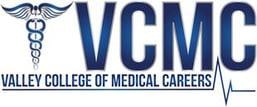Why You Should Consider a Career as a Surgical Technologist

The Surgical Technologist’s role is to support the surgical team in a variety of ways. Typical duties and responsibilities include:
- Organizing and preparing the sterile and non-sterile equipment for a particular procedure.
- Ensuring that the operating room is prepared with the correct surgical instruments and equipment, sterile solutions, and sterile drapes.
- Checking the functionality of surgical equipment prior to the start of a procedure
- Preparing the patients for surgery and checking their vital signs.
- Transporting patients to and from the operating room.
- Passing instruments to surgeons, and surgical assistants, and keeping the instruments organized during surgery.
- Operating equipment such as sterilizers, suction machines, lights, and diagnostic equipment. Handling specimens that are being analyzed in the laboratory.
- Disposing of specimens properly.
- Cleaning the operating room, post-surgery, and prepping it for the next procedure.
Surgical Technologists are trained at accredited medical career colleges. The average length of time, to graduate with an AOS degree in Surgical Technology, is sixteen months. Once the student receives a degree, he/she will complete an externship at an area hospital, or an outpatient facility, and then seek employment with help from the medical career college’s job placement staff.
According to the United States Bureau of Labor Statistics–BLS–Surgical Technologists are well positioned to enjoy rosy employment opportunities through 2024. The BLS estimates that there will be a 15 percent increase, in demand for Surgical Technologists, with employers paying a median salary of $45,940.00. The demand for Surgical Technologists is being driven, by the needs of an older patient population requiring more frequent surgeries, as well as by advancements in technology and an increase in surgical procedures.
Surgical Technology is just one of many rewarding and well-paying jobs available in the healthcare industry. For those who are interested in learning more about working as a Medical Assistant, Surgical Technologist, Medical Billing and Coding professional, and Pharmacy Tech, local medical career college admissions departments are a great place to start. Medical career colleges employ trained industry professionals, who can quickly match a student’s interests, skills, and aptitude, with the appropriate programs. Many accredited medical career colleges also have staff members who can assist prospective students with applying for financial aid, government grants, and GI bill benefits, as well as meeting other pre-enrollment requirements.
Photo by Ian Schneider on Unsplash



